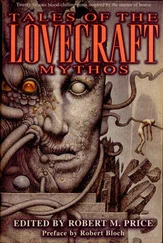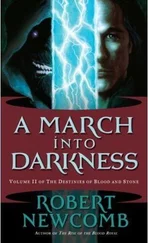Robert Pirsig - Lila. An Inquiry Into Morals
Здесь есть возможность читать онлайн «Robert Pirsig - Lila. An Inquiry Into Morals» весь текст электронной книги совершенно бесплатно (целиком полную версию без сокращений). В некоторых случаях можно слушать аудио, скачать через торрент в формате fb2 и присутствует краткое содержание. Жанр: Современная проза, на английском языке. Описание произведения, (предисловие) а так же отзывы посетителей доступны на портале библиотеки ЛибКат.
- Название:Lila. An Inquiry Into Morals
- Автор:
- Жанр:
- Год:неизвестен
- ISBN:нет данных
- Рейтинг книги:3 / 5. Голосов: 1
-
Избранное:Добавить в избранное
- Отзывы:
-
Ваша оценка:
- 60
- 1
- 2
- 3
- 4
- 5
Lila. An Inquiry Into Morals: краткое содержание, описание и аннотация
Предлагаем к чтению аннотацию, описание, краткое содержание или предисловие (зависит от того, что написал сам автор книги «Lila. An Inquiry Into Morals»). Если вы не нашли необходимую информацию о книге — напишите в комментариях, мы постараемся отыскать её.
Lila. An Inquiry Into Morals — читать онлайн бесплатно полную книгу (весь текст) целиком
Ниже представлен текст книги, разбитый по страницам. Система сохранения места последней прочитанной страницы, позволяет с удобством читать онлайн бесплатно книгу «Lila. An Inquiry Into Morals», без необходимости каждый раз заново искать на чём Вы остановились. Поставьте закладку, и сможете в любой момент перейти на страницу, на которой закончили чтение.
Интервал:
Закладка:
But what he saw at this point was a social pattern of values, a film, devouring an intellectual pattern of values, his book. It would be a lower form of life feeding upon a higher form of life. As such it would be immoral. And that’s exactly how it felt: immoral.
That’s what had produced all these something-wrong, something-wrong, something-wrong feelings. The mirrors were trying to take over the truth. They think that because they pay you money, which is a social form of gratification, they are entitled to do as they please with the intellectual truth of a book. Uh-uh.
Those gods. They’ll pull anything.
21
It was really getting cold out here.
Phædrus went to the big glass sliding door, pulled it open and with a wooshhhhh of inrushing wind went inside.
Ahh. Here it was warm again. And quiet. The room still seemed like some empty stage after the audience has gone home. The moth that he had noticed before now circled the wall lamp just above the davenport where Redford’s head had been. It went under the shade, made a little noise against the shade and then stopped. He waited for it to start again but it didn’t. Resting, maybe… Maybe burned by the heat of the bulb…
That’s what celebrity can do for you…
Phædrus heard a noise that sounded like a flow of water from some pipe draining above and then a wail that sounded like a small girl crying. She seemed about three. Maybe it was just TV. A woman’s voice was trying to console her. The woman’s voice sounded good. Well bred. Not trash. Then it stopped. Not TV.
He wondered how old this hotel was. Something from the twenties, maybe. The best period. The Victorians created this city, but in the twenties it really flowered… The joke about that Victorian moth metaphor is that according to science the moth isn’t really flying toward the flame. The moth is really trying to fly straight. Moths steer by keeping a constant angle with the sun or the moon, which works because the sun and moon are so far away a constant angle with them is virtually a straight line. But with a close-up light bulb a constant angle makes a circle. That’s what keeps the moths spinning round and round and round. What’s killing the moths is not a Dynamic aspiration for a higher life. That’s just Victorian nonsense. It’s a static biological pattern of value. They can’t change.
That was the feeling Phædrus got from this city. He was like a moth in danger of drifting in circles into some kind of celebrity orbit. Maybe at some prehistoric time, before celebrity became important, people could trust their natural desires to keep them going in a straight-forward direction. But once the artificial sun of celebrity was invented they started going in circles. Brains were capable of handling physical and biological patterns in prehistoric times but are brains Dynamic enough to handle modern social patterns? Maybe that scientific explanation didn’t weaken the Victorian metaphor. Maybe it fitted in with it.
It was strange the way the talk with Redford had suddenly converged on Blake school. When Phædrus said he’d gone to that school Redford had looked up with surprise. He’d looked as though he expected Phædrus to supply something he’d wanted to know for a long time.
Small world, Phædrus had said, and Redford agreed. Phædrus was going to tell him something more but they didn’t get into it. What was it?
Oh yes, what he was going to tell him was that there was more than just money involved, despite all the Packards and Minnetonka mansions and all the other capitalist symbols. The graciousness that he’d talked about was a left-over from Victorian days.
Those Victorians seemed to light Redford up too. He’d made a lot of films about that era. Something about them probably interested him as it does many other people. The Victorians represented the last really static social pattern we’ve had. And maybe someone who feels his life is too chaotic, too fluid, might look back at them enviously. Something about their rigid convictions about what was right and what was wrong might appeal to anyone brought up in laid-back Southern California of the forties and fifties. Redford seemed to be a rather Victorian person himself: restrained, well mannered, gracious. Maybe that’s why he lives here in New York. He likes the Victorian graciousness that still exists here in places.
It was too much to get into but Phædrus could have told Redford about the fifth grade school play called The Miser’s Dream in which he had played the miser who learns generosity through various events. For Blake school it was well chosen. That tiny stage was loaded with little future millionaires. Afterward a bald-headed old Victorian had come down to the locker room and shaken his hand and congratulated him and talked for a long time with a kind of gracious interest, and one of the teachers asked later, Do you know who that was? and of course Phædrus didn’t. But twenty years later when he was reading a magazine article about General Mills, the world’s largest flour milling company, he suddenly recognized the face of this little old bald-headed man. He was the founder of General Mills.
The face stuck in his mind as one of those fragments of memory that don’t fit. Here was one of the great giants of the evil greed-ridden Victorian capitalist tradition, but the direct primary impression was of a kind and friendly and gracious man.
Phædrus didn’t know what Blake was like today but back then it was grounded in Victorian traditions and values. The headmaster sermonized in chapel each morning on Victorian moral themes with the dedication and vigor of Theodore Roosevelt. He was so intense that after all these years Phædrus would be able to recognize his face instantly if he saw it in a crowd.
There was never any hesitation in the headmaster’s mind as to what quality was. Quality was the manner and spirit that a man of good breeding exemplified. The masters understood it and the boys did not. If the boys studied hard and played hard and showed that they were in earnest about their lives there was a good chance they would some day become worthy people. But there was no sign in the masters' eyes they had any confidence this would occur soon. The masters were always so sure of what was good and what was right. You knew that no matter how hard you tried you would never measure up to their standards. It was like Calvinistic Grace. There was a chance for you. That was all. They were offering you a chance.
Grace and morals were always external. They were not something you embodied. They were only something you could aspire to. You did bad things because you were bad and when you got whacked for doing something wrong it was an attempt to mold bad old you into something better. That word mold was important. The stuff they were trying to mold was inherently unchangeably bad, but the masters thought that by trying to shape it like modeling clay, through whacks and detentions and obloquy, they could mold it into something that gave it the appearance of goodness even though everyone understood it was still the same old rotten stuff underneath.
Truth, knowledge, beauty, all the ideals of mankind, are external objects, passed on from generation to generation like a flaming torch. The headmaster said each generation must hold them up high and protect them with their very lives lest that torch go out.
That torch. That was the symbol of the whole school. It was part of the school emblem. It should be passed on from one generation to another to light the way for mankind by those who understood its meaning and were strong enough and pure enough to hold to its ideals. What would happen if that torch went out was never stated, but Phædrus had guessed it would be like the end of the world. All of man’s progress out of the darkness would be ended. No one doubted that the headmaster’s only purpose in being there was to pass that torch to us. Were we worthy enough to receive it? It was a question everyone was expected to take seriously. And Phædrus did.
Читать дальшеИнтервал:
Закладка:
Похожие книги на «Lila. An Inquiry Into Morals»
Представляем Вашему вниманию похожие книги на «Lila. An Inquiry Into Morals» списком для выбора. Мы отобрали схожую по названию и смыслу литературу в надежде предоставить читателям больше вариантов отыскать новые, интересные, ещё непрочитанные произведения.
Обсуждение, отзывы о книге «Lila. An Inquiry Into Morals» и просто собственные мнения читателей. Оставьте ваши комментарии, напишите, что Вы думаете о произведении, его смысле или главных героях. Укажите что конкретно понравилось, а что нет, и почему Вы так считаете.











